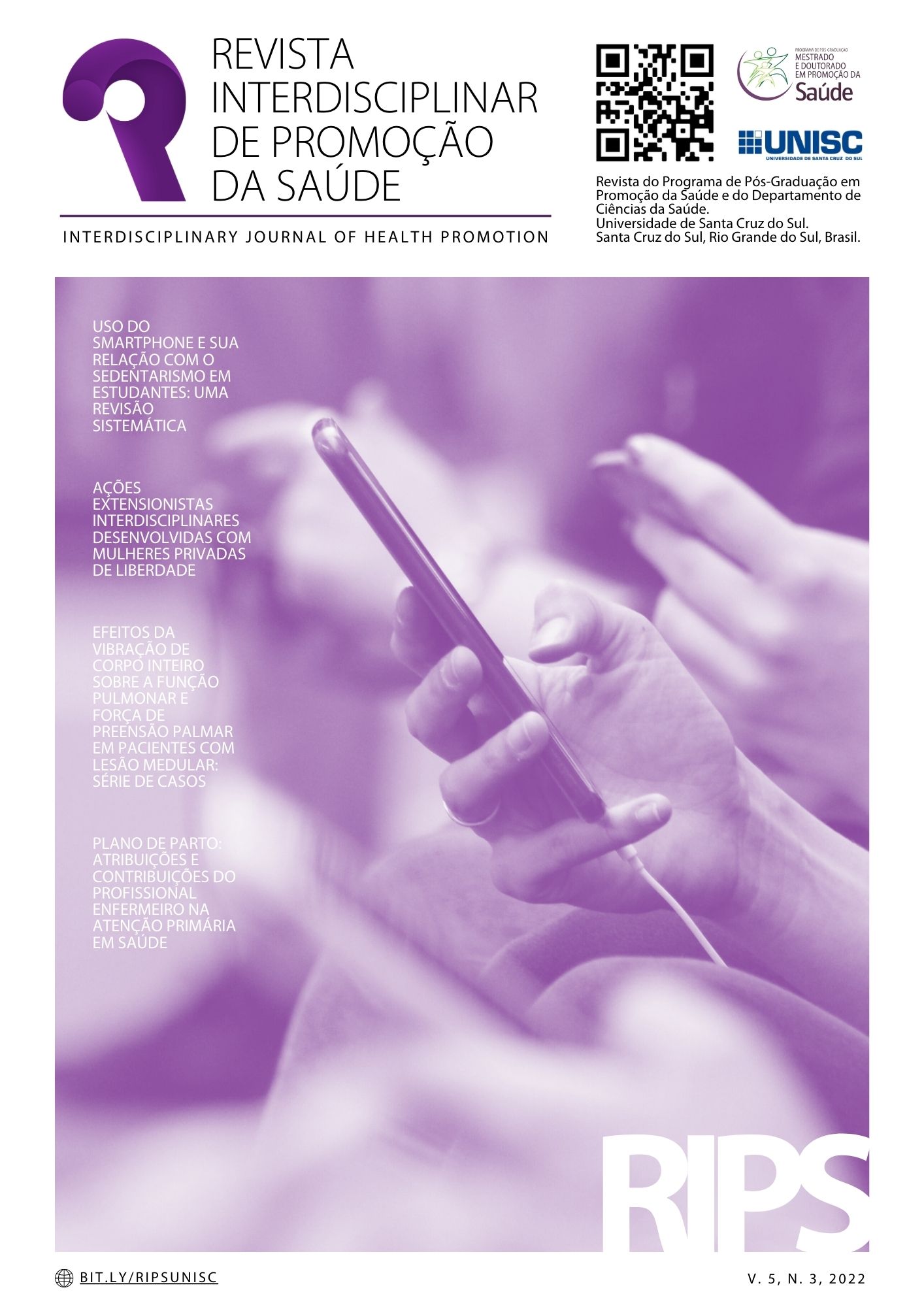Interdisciplinary extensionist actions developed with women deprived of freedom
DOI:
https://doi.org/10.17058/rips.v5i3.18549Abstract
Objective: this paper aims to report the health and feeding activities developed by project Accessibility and Health: Interdisciplinarity in Action and Food and Health subproject of the National Program for Professional Reorientation in Health with women deprived of liberty. Method: this is an interdisciplinary extensionist experience report, of qualitative - quantitative nature, carried out in the Women's State Prison in Rio Pardo, Rio Grande do Sul, from July to September 2022. The team works one morning a week with the women in situation of deprivation of freedom. An initial evaluation was carried out mapping socio-demographic data and health conditions by means of instruments: smoking addiction level (Fagerström Questionnaire), sleep quality (Pittsburgh Questionnaire), urinary incontinence (ICIQ-SF), and dietary assessment. Kinesiotherapy, mechanotherapy, nutrition and cooking workshops are held. Results: forty-seven women participated in the kinesiotherapy, with a mean age of 33.4 years, time of confinement between 7 days and 5 years, more than 70% were smokers, with a prevalence of high nicotine dependence, low education and overweight, 44.6% reported some clinical diagnosis, 59.5% reported pain, 65.5% reported use of medication, and 53.1% reported some treatment. The quality of sleep was predominantly good; however, 53.1% made continuous use of sleep inducers. In addition, 12 women reported urinary loss, 34 were pregnant, 50% had a cesarean section. Regarding food, 27 women answered, 81.48% reported liking the food prepared and served, however 59.25% reported post feeding discomfort and 37.03% constipation. Conclusion: Brazil has the fourth largest female prison population in the world. The legislation provides that the reintegration of women deprived of freedom into society must begin at the prison system, so that they can have opportunities for reintegration into society, thus, extensionist actions of this magnitude, in this reality and context are very important, because in addition to the benefits to the public, provides qualification and humanization in academic training.
Keywords: Health; Penitentiary; Quality of life; Vulnerability.
Downloads

Downloads
Published
How to Cite
Issue
Section
License
A submissão de originais para este periódico implica na transferência, pelos autores, dos direitos de publicação impressa e digital. Os direitos autorais para os artigos publicados são do autor, com direitos do periódico sobre a primeira publicação. Os autores somente poderão utilizar os mesmos resultados em outras publicações indicando claramente este periódico como o meio da publicação original. Em virtude de sermos um periódico de acesso aberto, permite-se o uso gratuito dos artigos em aplicações educacionais e científicas desde que citada a fonte conforme a licença CC-BY da Creative Commons.



